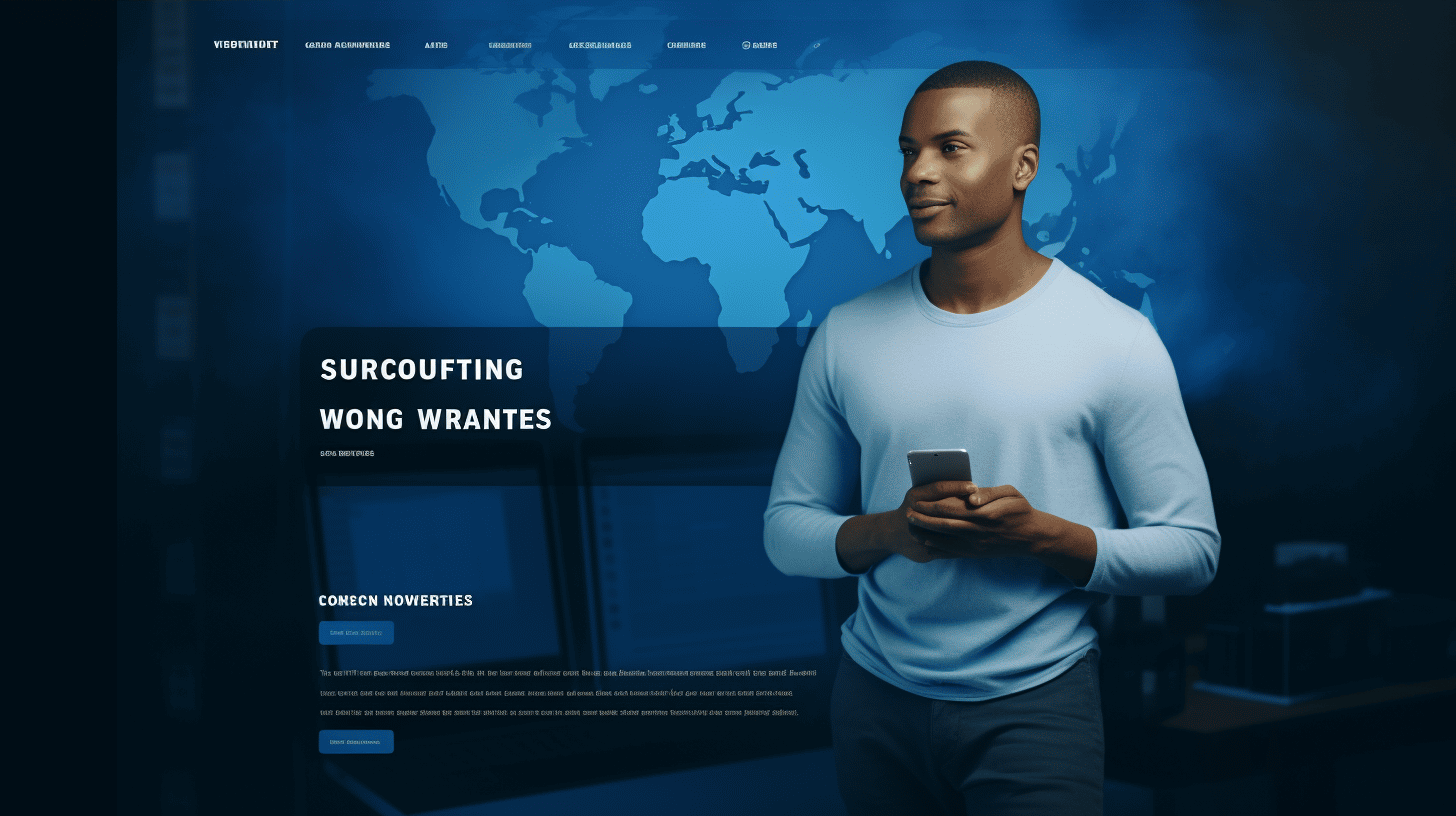无论您是小企业主、自由职业者还是博主,拥有一个安全的网站都至关重要。在当今的数字环境中,网络攻击的风险比以往任何时候都高。最受欢迎的网站构建平台之一是 WordPress,随着它的流行,黑客的关注度也随之增加。
在本文中,我们将探讨小型企业应实施的基本 WordPress 安全实践,以保护其网站和用户数据。我们将深入研究当前的 WordPress 安全形势,重点介绍存在风险的目标 WordPress 插件,并提供实施关键安全措施的全面指南。在本文结束时,您将对可以采取的步骤有深入的了解,以保护您的 WordPress 网站并减轻潜在的安全漏洞。
所以,系好安全带,因为我们即将深入探讨 WordPress 安全的世界。但别担心,我们将指导您完成每一步,确保您的网站基础安全且能够抵御潜在的网络威胁。让我们开始吧!🚀
WordPress 安全概况
在当今的数字时代,网站安全至关重要。WordPress 是目前最流行的内容管理系统 (CMS) 之一,但它也无法避免各种安全风险。了解 WordPress 安全状况对于网站所有者和管理员来说至关重要,这样他们才能保护自己的网站和用户免受潜在的网络威胁。本节将深入探讨 WordPress 安全状况的一些关键方面,揭示普遍存在的漏洞、过时软件和插件带来的风险、WordPress 网站攻击的频率和后果,以及 WordPress 为何仍然是网络攻击的热门目标。
跨站点脚本 (XSS) 漏洞的普遍性
跨站点脚本 (XSS) 漏洞对 WordPress 网站构成重大风险。XSS 攻击涉及将恶意代码注入网站,然后在客户端执行,从而暴露用户数据并危及网站安全。根据最近的 WordPress 漏洞报告,在 WordPress 中发现的所有新漏洞中,高达 53.3% 与 XSS 有关。此统计数据表明,认真解决和修补 XSS 漏洞对于确保强大的安全态势至关重要。
与过时软件和插件相关的风险
过时的软件和插件是攻击者利用 WordPress 网站漏洞的常见切入点。不定期更新 WordPress 核心、主题和插件可能会使网站容易受到各种安全风险的影响。这些风险包括未经授权的访问、数据泄露甚至整个网站被接管。作为网站所有者或管理员,保持警惕并及时应用安全补丁和更新至关重要。通过这样做,您可以大大降低成为网络攻击受害者的风险。
WordPress 网站攻击的频率和后果
由于使用范围广泛,WordPress 仍然是网络犯罪分子的诱人目标。令人震惊的是,统计数据显示,仅在 2021 年,就有大约 4.3% 的 WordPress 网站遭到黑客攻击。根据这些数据推算,每年约有 470 万个 WordPress 网站遭到黑客攻击。此类攻击可能导致严重后果,包括个人信息被盗、财务损失以及个人和企业的声誉受损。必须采取主动措施保护 WordPress 网站免受潜在攻击,并将对用户和网站所有者的潜在影响降至最低。
WordPress 成为网络攻击的热门目标
WordPress 的流行使其成为网络攻击的诱人目标。互联网上有超过 40% 的网站使用 WordPress,因此它提供了大量的潜在受害者。报告显示,WordPress 每分钟遭受大约 90,000 次攻击,这突显了威胁形势的规模。网络犯罪分子利用 WordPress 中的漏洞和安全漏洞进行各种恶意活动,例如安装恶意软件或未经授权访问敏感数据。WordPress 的巨大流行凸显了采取强有力的安全措施和持续警惕以保护网站和用户的必要性。
总体而言,了解 WordPress 的安全状况对于保护网站和确保可靠的在线状态至关重要。降低与常见漏洞相关的风险、主动更新软件和插件、了解攻击的频率和后果以及承认 WordPress 作为攻击目标的受欢迎程度都是维护安全 WordPress 网站的关键步骤。通过优先考虑安全性并采用最佳实践,网站所有者和管理员可以阻止潜在威胁并为用户提供安全可靠的在线体验。
有针对性的 WordPress 插件
说到 WordPress 插件,用户有无数种选择。然而,并非所有插件都是一样的。事实上,有些插件因特别适合满足特定需求或功能而声名鹊起。这些有针对性的 WordPress 插件提供了专门的功能和优势,可满足特定用户或行业的需求。
在本文中,我们将仔细研究三个流行的 WordPress 插件:TimThumb、RevSlider 和 Gravity Forms。这些插件因其能够增强和简化 WordPress 网站的特定方面而获得了广泛的关注和赞誉。
TimThumb:增强图像管理
任何网站最重要的方面之一就是图片管理。TimThumb 是一款专门针对图片处理和优化的 WordPress 插件。它允许用户调整图片大小、裁剪和旋转图片,确保图片针对网页显示进行优化并快速加载。
使用 TimThumb,用户可以轻松自定义其网站上的图像外观,确保设计具有视觉吸引力和专业性。通过优化图像以在网页上显示,TimThumb 有助于提高网站性能和用户体验。
RevSlider:迷人的滑块和动画
如果您曾经访问过带有引人入胜的滑块或动画的网站,那么它很可能是由 RevSlider 提供支持的。这个有针对性的 WordPress 插件以其创建令人惊叹且具有交互性的滑块、轮播和动画的能力而闻名。它提供了广泛的设计选项,包括基于图层的动画、视差效果和视频背景。
RevSlider 允许用户在其 WordPress 网站上轻松创建引人注目的动态视觉元素,帮助他们吸引和俘获访客。无论您是希望展示最新作品的博主,还是突出特色产品的电子商务企业,RevSlider 都可以帮助您产生强大的影响力。
Gravity Forms:简化的表单创建
表单是任何网站不可或缺的一部分,它允许用户提交查询、订阅新闻通讯或进行购买。Gravity Forms 是一款有针对性的 WordPress 插件,可简化表单的创建和管理。借助其用户友好的界面和拖放功能,用户可以快速轻松地创建自定义表单。
Gravity Forms 提供各种表单字段和自定义选项,使用户能够根据自己的特定需求定制表单。它还与流行的电子邮件营销服务和 CRM 平台无缝集成,使其成为捕获和管理潜在客户的宝贵工具。
总之,在增强 WordPress 网站的特定功能方面,有针对性的插件可以改变游戏规则。TimThumb、RevSlider 和 Gravity Forms 只是满足特定需求并提供专门功能的流行插件的几个例子。通过将这些插件整合到您的 WordPress 网站中,您可以增强图像管理、创建引人入胜的滑块和动画并简化表单创建,最终改善您网站的功能和用户体验。
要全面比较各种 WordPress 安全插件(包括 Wordfence、MalCare 等),请查看 WordPress 安全插件.
WordPress 的安全最佳实践
🔒 在保护您的 WordPress 网站时,您应该遵循一些最佳实践来保护您的网站免受潜在威胁。从实施强密码到定期更新,每一步都有助于使您的网站更安全。在本文中,我们将探讨每个 WordPress 用户都应实施的一些基本安全实践,以保护他们的网站。
实施强密码策略
🔐 WordPress 最基本但最关键的安全措施之一是实施强密码策略。弱密码或易猜密码是黑客可以利用的重大漏洞,从而未经授权访问您的网站。要加强您的密码策略,请执行以下操作:
- 鼓励用户创建独特、复杂的密码,其中包含大写和小写字母、数字和符号的组合。
- 通过用户注册表或借助“强制强密码”等插件来强制执行密码强度要求。
- 定期向用户普及最佳密码实践,并提醒他们定期更新密码。
启用双因素身份验证
🔑 双重身份验证 (2FA) 为您的 WordPress 登录过程增加了一层额外的安全保护。通过要求用户提供第二种形式的身份验证(例如发送到其移动设备的一次性密码),它大大降低了未经授权访问的风险。要在 WordPress 网站上启用 2FA,请执行以下操作:
- 安装可信的双因素身份验证插件,如“Google Authenticator”或“Duo Two-Factor Authentication”。
- 按照插件的文档为您的网站设置和配置 2FA。
- 鼓励用户为他们的帐户启用 2FA,以加强您网站的整体安全性。
WordPress 核心、插件和主题的定期更新
🔄 定期更新 WordPress 核心、插件和主题是维护网站安全的重要步骤。更新通常包括解决已知漏洞的安全补丁,从而降低潜在攻击的风险。为确保您保持最新状态:
- 设置 WordPress 核心、插件和主题的自动更新。
- 定期手动检查更新并查看更改日志以查看是否包含任何与安全相关的修复。
- 仅使用来自积极维护和更新其产品的知名来源的插件和主题。
SSL 证书和 HTTPS 加密的使用
🔒 使用 SSL 证书并启用 HTTPS 加密对于保护您的网站与其访问者之间传输的敏感信息至关重要。 SSL 证书建立安全加密的连接,确保数据安全传输。 要实施 SSL 和 HTTPS 加密:
- 从受信任的证书颁发机构 (CA) 提供商处获取 SSL 证书。
- 在您的服务器上安装证书并将您的网站配置为使用 HTTPS。
- 使用“Really Simple SSL”或“WP HTTPS”等插件来处理 HTTPS 转换并自动将 HTTP 流量重定向到 HTTPS。
选择合适的托管服务提供商和管理托管
🌐 托管服务提供商的选择会严重影响您的 WordPress 网站的安全性。选择以安全措施和出色支持而闻名的知名托管服务提供商至关重要。选择托管服务提供商时请考虑以下因素:
- 寻找提供托管 WordPress 主机的提供商,因为他们通常会采取额外的安全措施。
- 检查主机是否提供定期备份、高级防火墙保护、恶意软件扫描和 DDoS 缓解。
- 阅读评论并比较不同的托管服务提供商,以找到最符合您网站安全要求的服务提供商。
安装信誉良好的安全插件
🛡️ 安装信誉良好的安全插件可以通过添加额外的保护层来帮助增强 WordPress 网站的安全性。以下是一些值得考虑的流行安全插件:
- “Wordfence Security”:提供扫描、防火墙保护和登录安全功能。
- “Sucuri Security”:提供恶意软件扫描、网站强化和高级防火墙。
- “iThemes Security”:为您提供用户管理、暴力攻击预防和文件完整性检查工具。
🔍 请记住定期更新这些插件以利用最新的安全增强功能。
限制登录尝试次数
🚫 为了保护您的网站免受暴力攻击,限制允许的登录尝试次数至关重要。通过限制重复登录尝试,您可以防止黑客未经授权访问您的网站。要限制登录尝试次数:
- 使用“登录锁定”或“限制重新加载登录尝试次数”等插件来限制登录尝试次数并在特定时间内锁定 IP 地址。
- 如前所述,设置强密码策略,以进一步阻止暴力攻击。
更改默认管理员用户名
👤 更改默认的“管理员”用户名可增加一层额外的安全性,使潜在攻击者更难找到登录凭据。以下是更改默认管理员用户名的方法:
- 创建具有管理员权限的新用户。
- 注销您的 WordPress 管理员帐户并使用新创建的用户登录。
- 转到“用户”部分并删除默认管理员用户,确保将所有内容归属于新用户帐户。
定期网站备份
💾 定期备份 WordPress 网站对于应对安全漏洞或意外数据丢失至关重要。拥有最新备份可让您快速恢复网站并最大程度地减少停机时间。实施定期备份时请考虑以下事项:
- 使用“UpdraftPlus”或“VaultPress”等插件来安排自动备份并将其安全地存储在异地。
- 定期测试您的备份,以确保它们正常运行,并且您可以在必要时恢复您的网站。
定期检查和更新插件和主题漏洞
🔍 跟踪插件和主题漏洞对于维护安全的 WordPress 网站至关重要。过时或编码不当的插件和主题中的漏洞可以作为攻击的切入点。请遵循以下准则以保持更新:
- 监控安全博客、WordPress.org 插件和主题目录以及安全邮件列表中的漏洞公告。
- 定期将您的插件和主题更新到最新版本以修补任何已知漏洞。
- 从您的网站删除任何未使用或过时的插件和主题,以减少潜在的攻击面。
通过实施这些安全最佳实践,您可以显著增强 WordPress 网站的安全性并保护其免受潜在威胁。认真而自信地保护您的网站,这样您就可以专注于真正重要的事情:创建出色的内容并吸引您的受众!
保护用户数据和功能
在管理网站时,最重要的方面之一是确保用户数据和功能的安全。随着网络威胁和数据泄露的增加,采取主动措施保护敏感信息并维持网站平稳运行至关重要。在本节中,我们将讨论保护用户数据和功能需要关注的三个关键领域:保护文件上传、选择自定义 WordPress 主题以及利用专业的 WordPress 网络代理服务。
保护文件上传
文件上传是许多网站的常见功能,允许用户共享文档、图片和其他媒体。但是,如果没有妥善保护,文件上传可能会对网站的安全造成重大风险。以下是确保文件上传安全的几个技巧:
- 验证并清理用户输入:在接受任何文件之前,对用户输入应用严格的验证和清理措施。这有助于防止恶意文件上传到您的服务器。
- 限制文件类型和大小:限制可上传的文件类型及其最大大小。这可降低执行恶意脚本或因大文件而导致服务器过载的风险。
- 实施安全文件存储:将上传的文件存储在 Web 根目录之外的安全位置。这可防止未经授权的用户直接访问文件,并降低任意代码执行的风险。
选择自定义 WordPress 主题
虽然 WordPress 提供了多种主题供您自定义网站,但选择优先考虑安全性的自定义主题至关重要。选择自定义 WordPress 主题时,请注意以下几点:
- 声誉和评论:寻找那些有积极反馈和用户高评价的主题。这表明该主题值得信赖和可靠。
- 定期更新和支持:确保主题开发人员定期提供更新以解决安全漏洞,并在出现任何问题或疑虑时提供支持。
- 代码质量和漏洞检查:检查主题是否遵循最佳编码实践、遵守 WordPress 安全标准并经过漏洞检查。
专业 WordPress 网站代理服务
管理和保护网站可能很复杂,尤其是对于缺乏技术专业知识或资源的企业而言。聘请专业的 WordPress 网站代理机构可以带来许多好处,包括:
- 专业知识:专业机构将拥有一支经验丰富的开发人员团队,他们精通 WordPress 安全最佳实践。他们可以实施强大的安全措施并持续监控您的网站是否存在任何潜在威胁。
- 备份和恢复:网络代理机构可以为您的网站创建备份系统,并在发生数据丢失或安全漏洞时提供恢复解决方案。
- 主动安全措施:专业机构可以进行例行安全审计,实施防火墙,并提供实时监控,以便及时发现和解决任何漏洞。
通过优先考虑文件上传的安全性、选择自定义 WordPress 主题以及利用专业的网络代理服务,您可以有效地保护用户数据并维护网站的功能。实施这些措施不仅可以保护您的网站免受潜在威胁,还可以增强用户对您品牌的信任和信心。有关 WordPress 中用户角色和功能管理的更多信息,请查看 用户角色和能力管理.
网站级保护措施
在网络威胁不断演变的世界中,网站所有者实施强大的安全措施来保护其在线状态至关重要。网站级保护措施在保护您的网站免受恶意攻击、确保访问者的安全和可信度方面发挥着至关重要的作用。让我们探讨两种可以增强您网站防御能力的重要做法。
全面的防火墙和恶意软件扫描程序🔥🔒
抵御网络威胁的第一道防线之一是全面的防火墙和恶意软件扫描程序。这种强大的组合可充当盾牌,阻止未经授权的访问尝试并检测潜在的恶意软件感染。这就是为什么必须安装可靠的防火墙和恶意软件扫描程序的原因:
- 威胁检测: 强大的防火墙会持续监控传入和传出流量,以识别潜在威胁。它会分析模式、行为和 IP 地址,以确定它们是否是恶意的或可疑的。通过实时检测和阻止这些威胁,防火墙可以防止未经授权访问您的网站。
- 恶意软件预防: 恶意软件会破坏您的网站并泄露敏感的用户数据。恶意软件扫描程序会定期扫描您网站的文件、主题、插件和数据库,以检测任何恶意代码的迹象。通过定期扫描恶意软件,您可以尽早发现感染并立即采取措施将其清除。
- 黑名单监控: 拥有防火墙和恶意软件扫描程序还可以帮助您跟踪网站的声誉。这些工具可以监控您的网站是否因可疑活动或恶意软件感染而被列入黑名单。通过主动解决这些问题,您可以维护网站的可信度和可靠性。
通过实施全面的防火墙和恶意软件扫描程序,例如 全面的防火墙和恶意软件扫描程序,网站所有者可以显著增强其网站的安全性并保护宝贵的用户数据。
向用户传授安全最佳实践
网站所有者可以采取额外的主动措施,通过教育用户安全最佳实践来加强网站级别的保护。通常,网站安全中最薄弱的环节可能是人为疏忽或缺乏意识。通过为用户提供在线保护自己的知识和工具,您可以创建一个更安全的环境。以下是一些需要强调的安全最佳实践:
- 强密码: 鼓励用户创建强大而独特的密码并定期更改。解释使用大小写字母、数字和特殊字符组合的重要性。
- 网络钓鱼意识: 帮助用户识别和避免网络钓鱼行为,即试图窃取敏感信息(如用户名、密码或信用卡详细信息)的欺诈行为。教导用户警惕可疑的电子邮件、链接和附件。
- 软件更新: 强调保持浏览器、操作系统和插件更新的重要性。定期更新通常包含可防范已知漏洞的重要安全补丁。
- 安全数据传输: 鼓励用户在通过您的网站传输敏感信息时选择安全协议,例如 HTTPS。解释加密在保护其数据方面的好处。
通过向用户介绍这些安全最佳实践,您可以让他们积极参与维护安全的在线环境。他们的意识和负责任的行为可以帮助防止潜在的安全漏洞,并保护他们的数据和您的网站。
总之,网站级保护措施(例如实施全面的防火墙和恶意软件扫描程序以及教育用户安全最佳实践)对于加强网站的安全性至关重要。通过投资强大的安全措施并培养安全意识文化,网站所有者可以有效地保护他们的在线形象并为访问者提供安全的浏览体验。
托管服务提供商和备份的作用
在运营在线商店时,选择合适的托管服务提供商并实施定期备份是确保网站成功和安全的关键步骤。信誉良好的托管服务提供商和可靠的备份策略可以保护您的网站免受意外问题的困扰,为您的客户提供无缝体验,并让您作为企业主高枕无忧。
选择信誉良好的托管服务提供商
为您的在线商店选择一家信誉良好的托管服务提供商是一个不容轻视的决定。您选择的托管服务提供商将直接影响您网站的性能、安全性和可靠性。以下是进行选择时需要考虑的一些因素:
- 正常运行时间: 寻找能够保证高正常运行时间百分比的托管服务提供商,理想情况下为 99.9% 或更高。可靠的托管服务提供商将确保您的网站始终可供客户访问。
- 速度: 网站加载速度对于用户体验和搜索引擎优化 (SEO) 至关重要。选择提供快速服务器响应时间并使用缓存技术来优化网站性能的托管服务提供商。
- 安全: 网络安全威胁是在线业务的真正担忧。确保您的托管服务提供商认真对待安全性,并提供防火墙、SSL 证书和定期恶意软件扫描等强大措施来保护您的网站免受攻击。
- 可扩展性: 随着您的在线商店的发展,您可能需要扩展资源以适应不断增加的流量和需求。选择提供灵活可扩展性选项的托管服务提供商,例如能够升级托管计划或根据需要添加其他资源。
请记住,托管服务提供商是您在线业务旅程中不可或缺的合作伙伴。研究并选择信誉良好的提供商将有助于确保您的网站顺利且安全地运行。
定期备份的重要性
虽然好的托管服务提供商可以大大降低数据丢失的风险,但制定备份策略始终是明智之举。定期备份您的网站和商店数据至关重要,原因如下:
- 防止数据丢失: 意外随时可能发生,数据丢失可能由于各种原因而发生,例如硬件故障、人为错误或网络攻击。定期备份可确保您拥有网站和数据的最新副本,以便在需要时可以恢复。
- 快速恢复问题: 如果您的网站不幸遇到问题或受到攻击,通过备份,您可以快速将网站恢复到以前的状态,最大限度地减少停机时间和潜在的收入损失。
- 安心: 知道您有网站和数据的备份可以让您高枕无忧。它让您可以专注于发展业务,而不必担心丢失宝贵的信息。
安全文件上传实践
将文件上传到在线商店时,务必遵循安全做法,以保护您的网站和用户免受潜在威胁。以下是一些需要牢记的提示:
- 扫描文件中的恶意软件: 在将任何文件上传到您的网站之前,请确保您已扫描过其中的恶意软件或病毒。这有助于防止您的网站被恶意代码感染。
- 限制文件上传大小和类型: 设置可上传到您网站的文件类型和大小限制。这可防止潜在的安全漏洞并避免服务器过载。
- 用户权限控制: 实施严格的用户权限控制,以限制对文件上传的访问。这有助于防止未经授权的用户将潜在的恶意文件上传到您的网站。
通过实施这些安全的文件上传实践,您可以最大限度地降低安全漏洞的风险并维护在线商店的完整性。
总之,选择信誉良好的托管服务提供商、实施定期备份以及遵循安全的文件上传实践对于在线商店的成功和安全至关重要。这些措施有助于保护您的网站,确保您的客户获得无缝体验,并让您作为企业主安心。请记住明智地选择托管服务提供商并创建适合您业务需求的备份策略。保持警惕并优先考虑安全性,以确保您的在线商店顺利运行。
强调认证措施
在当今的数字环境中,网络威胁和数据泄露继续构成重大风险,确保在线账户的安全已成为重中之重。保护敏感信息的最有效方法之一是实施强大的身份验证措施。通过要求用户在获得访问权限之前证明其身份,企业可以大大降低未经授权的访问和潜在数据泄露的可能性。
强密码管理
加强身份验证措施的首要和最关键步骤之一是采用适当的密码管理实践。弱密码或易猜密码就像是向黑客发出的公开邀请,因此必须鼓励用户创建强大而独特的密码。以下是一些促进良好密码习惯的提示:
- 密码长度:鼓励用户选择长度至少为 12 个字符的密码。密码越长,破解难度就越大。
- 复杂:强调密码中包含大小写字母、数字和特殊字符组合的重要性。这增加了一层复杂性,使密码更难猜测。
- 避免使用常用词语和个人信息:提醒用户避免使用常用的字典单词、姓名、生日或任何其他容易与其联系起来的个人信息。黑客经常使用个人信息来猜测密码。
- 定期更新密码:鼓励定期更新密码,以确保持续安全。提醒用户每隔几个月或在任何潜在的安全漏洞发生后更改密码。
双重身份验证
虽然强密码是一个很好的开始,但通过双因素身份验证 (2FA) 添加额外的安全层可以进一步保护用户帐户。2FA 要求用户提供两种不同的身份证明来访问他们的帐户,通常是密码和一次性验证码。这提供了额外的安全级别,大大降低了未经授权访问的风险。2FA 的一些常见形式包括:
- 短信或电子邮件验证:用户通过短信或电子邮件收到唯一的验证码,他们需要与密码一起输入该验证码。
- 身份验证应用程序:用户可以下载 Google Authenticator 或 Authy 等身份验证应用程序,它们可以生成基于时间的验证码。
- 生物特征验证:一些设备或平台提供指纹或面部识别等生物特征验证方法。
实施 2FA 不仅可以增强安全性,还可以让用户安心,因为他们知道自己的帐户不太容易受到未经授权的访问。
通过优先采取强密码管理和实施双因素身份验证等措施,企业可以加强安全防御并有效保护敏感的用户数据。请记住,身份验证层数越多,网络犯罪分子入侵账户的难度就越大。
安装免费 SSL 证书 进一步增强您网站的安全性。
关键的 WordPress 安全实践
在当今的数字环境中,WordPress 网站的安全性至关重要。随着网络威胁变得越来越复杂和普遍,采取主动措施保护您的在线状态至关重要。本文将指导您完成一些关键的 WordPress 安全实践,这些实践将有助于确保您的网站安全无虞。
安全托管
WordPress 安全性的基础支柱之一是您选择的托管服务提供商。选择信誉良好且安全的托管平台至关重要。寻找提供以下服务的托管服务提供商:
- 强有力的安全措施:确保托管服务提供商已实施强大的安全协议,例如防火墙、入侵检测系统和恶意软件扫描。
- 定期备份:定期备份您的网站至关重要,以确保您拥有网站的最新副本,以防出现任何安全漏洞或数据丢失。
- 安全的服务器环境:选择提供安全服务器环境的托管服务提供商,例如安全文件传输协议 (SFTP) 访问和有限的服务器资源访问。
创建强密码
密码是防止未经授权访问您的 WordPress 网站的第一道防线。通过创建强密码,您可以显著降低安全漏洞的风险。以下是创建密码的一些最佳做法:
- 长度和复杂性:使用长度至少为 12 个字符的密码,并混合使用大小写字母、数字和特殊字符。
- 避免使用常用密码:避免使用容易被猜到的密码,例如“password”或“123456”。这些密码容易受到暴力攻击。
- 密码管理:使用可靠的密码管理器为您的 WordPress 网站生成和存储唯一的密码。
利用 SSL 证书
确保网站与用户之间的数据传输安全至关重要。SSL(安全套接字层)证书可加密用户浏览器与网站服务器之间交换的数据。以下是 SSL 证书对 WordPress 安全至关重要的原因:
- 安全通信:SSL 证书可确保敏感信息(例如登录凭据和付款详细信息)得到加密并防止未经授权的访问。
- 搜索引擎排名:搜索引擎优先考虑具有 SSL 证书的网站,这可以对您网站的可见性和自然流量产生积极影响。
- 信任与可信度:SSL 证书显示视觉提示,例如网站地址中的挂锁图标和“https”,可以与您的访问者建立信任并确保您网站的安全。
记得定期更新您的 WordPress 安装、主题和插件,以避免潜在的安全漏洞。过时的软件可能会让您的网站容易受到攻击。
安装 WordPress 安全插件有助于增强您网站的防御能力,其功能包括:
- 实时威胁监控:该插件会扫描您的网站是否存在潜在的安全威胁并实时向您发出警报,让您立即采取行动。
- 恶意软件检测和删除:WordPress 安全插件通常包括恶意软件扫描和删除功能,以保护您的网站免受恶意代码的侵害。
- 防火墙保护:一些安全插件提供防火墙保护,作为防止未经授权的访问尝试的额外防御层。
监控可疑活动
密切关注 WordPress 网站上的可疑活动对于及时识别和解决安全威胁至关重要。定期监控可以让您:
- 跟踪登录尝试:检查失败的登录尝试或不寻常的登录模式,这可能表明存在暴力密码攻击或未经授权的访问尝试。
- 监视文件更改:注册警报或使用安全插件来跟踪对您的核心 WordPress 文件或主题文件的任何未经授权的修改。
- 查看用户活动日志:监控用户活动日志可以帮助您识别具有管理权限的用户所做的可疑行为或未经授权的更改。
管理用户角色和权限
WordPress 提供了灵活的用户管理系统,允许网站所有者为不同用户分配角色和权限。正确管理用户角色和权限有助于降低安全风险。请考虑以下事项:
- 分配适当的角色:根据用户的职责分配用户角色,并限制其角色不需要的功能和内容的访问。
- 定期检查用户账户:定期审查用户帐户,确保活跃帐户仍然有效,并删除任何不活跃或过期的帐户。
定期安全审核
定期进行安全审核对于维护 WordPress 网站的完整性至关重要。安全审核可帮助您识别漏洞并实施必要措施来保护您的网站免受未来攻击。安全审核可能涉及以下内容:
- 插件和主题评论:评估您安装的插件和主题的安全性配置文件,并删除任何过时或有已知漏洞的插件和主题。
- 数据库安全:检查您的 WordPress 数据库安全设置并确保只有授权用户才能访问数据库。
- 文件系统检查:定期检查您的文件系统以检测任何恶意文件或未经授权的更改。
实施这些关键的 WordPress 安全实践将大大有助于保护您的网站并保护您的在线状态免受潜在威胁。通过遵循这些建议,您可以确保您的网站保持安全,使您能够专注于发展您的在线业务。
有关 WordPress 安全实践的更多详细提示,您可以查看此文章 网站安全的基本提示.
结论
总之,保护您的 WordPress 网站对于保护其免受潜在的网络攻击和保障您企业的在线形象至关重要。通过实施本文中提到的最佳实践,例如使用强密码、启用双因素身份验证以及定期更新您的 WordPress 核心、插件和主题,您可以显著增强网站的安全性。
与 Managed-WP™ 等信誉良好的托管服务提供商合作可以为您提供额外的保护。借助他们的托管 WordPress 云托管平台,您可以简化基础架构,享受数字体验的自由,并获得专家全天候 WordPress 支持。
不要等到为时已晚。立即采取必要措施保护您的 WordPress 网站,确保您的业务及其宝贵数据的安全。请记住,现在投资安全措施可以避免将来出现潜在的麻烦和财务损失。
了解有关 Managed-WP™ 的更多信息以及它们如何帮助您保护您的 WordPress 网站。
常见问题
- 为什么 WordPress 安全对小型企业很重要?
WordPress 安全对于小型企业来说至关重要,它可以保护其敏感数据、客户信息和网站免受网络威胁。它有助于防止未经授权的访问、数据泄露以及对企业声誉的潜在损害。
- 对于小型企业来说,一些基本的 WordPress 安全实践是什么?
小型企业的基本 WordPress 安全实践包括保持 WordPress 和插件为最新版本、使用强大而独特的密码、使用信誉良好的安全插件、启用双因素身份验证、定期备份网站以及限制具有管理员权限的用户帐户的访问。
- 我应该多久更新一次 WordPress 和插件?
应定期更新 WordPress 和插件,以确保实施最新的安全补丁和错误修复。尽量在有新更新可用时立即更新它们,以减少漏洞和潜在的安全风险。
- 是否有必要使用 WordPress 安全插件?
虽然 WordPress 本身提供了一些内置的安全功能,但强烈建议使用安全插件。安全插件提供额外的保护层,如恶意软件扫描、防火墙保护、登录锁定和其他安全措施来保护您的网站。
- 如果我的 WordPress 网站被黑客入侵,我该怎么办?
如果您的 WordPress 网站遭到黑客攻击,请立即采取行动,联系您的网站托管服务提供商,扫描您的网站以查找恶意软件,从干净的备份中恢复,更改所有密码,并实施更强大的安全措施。此外,识别导致黑客攻击的漏洞并对其进行修补以防止将来再次发生入侵也很重要。



















